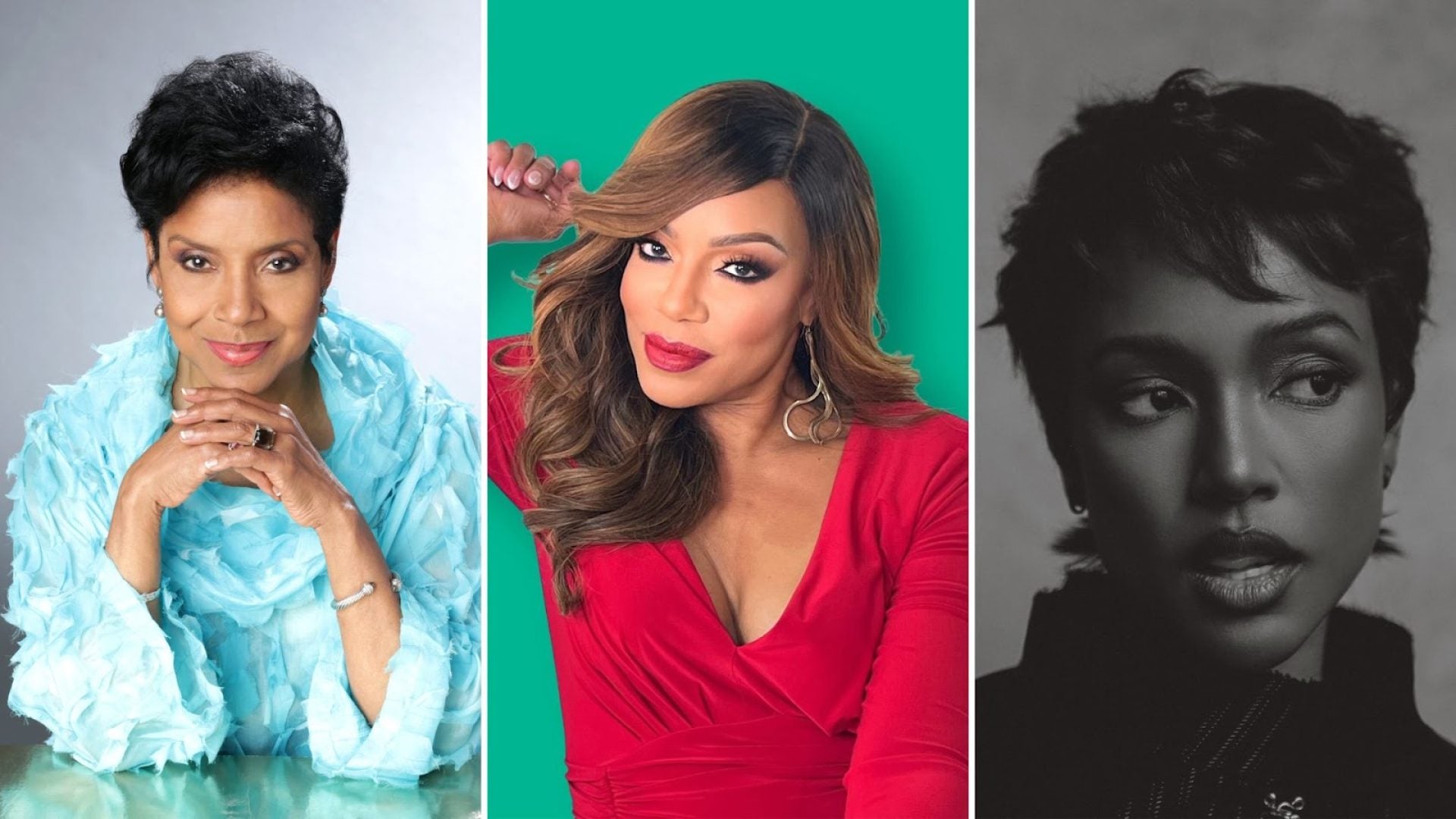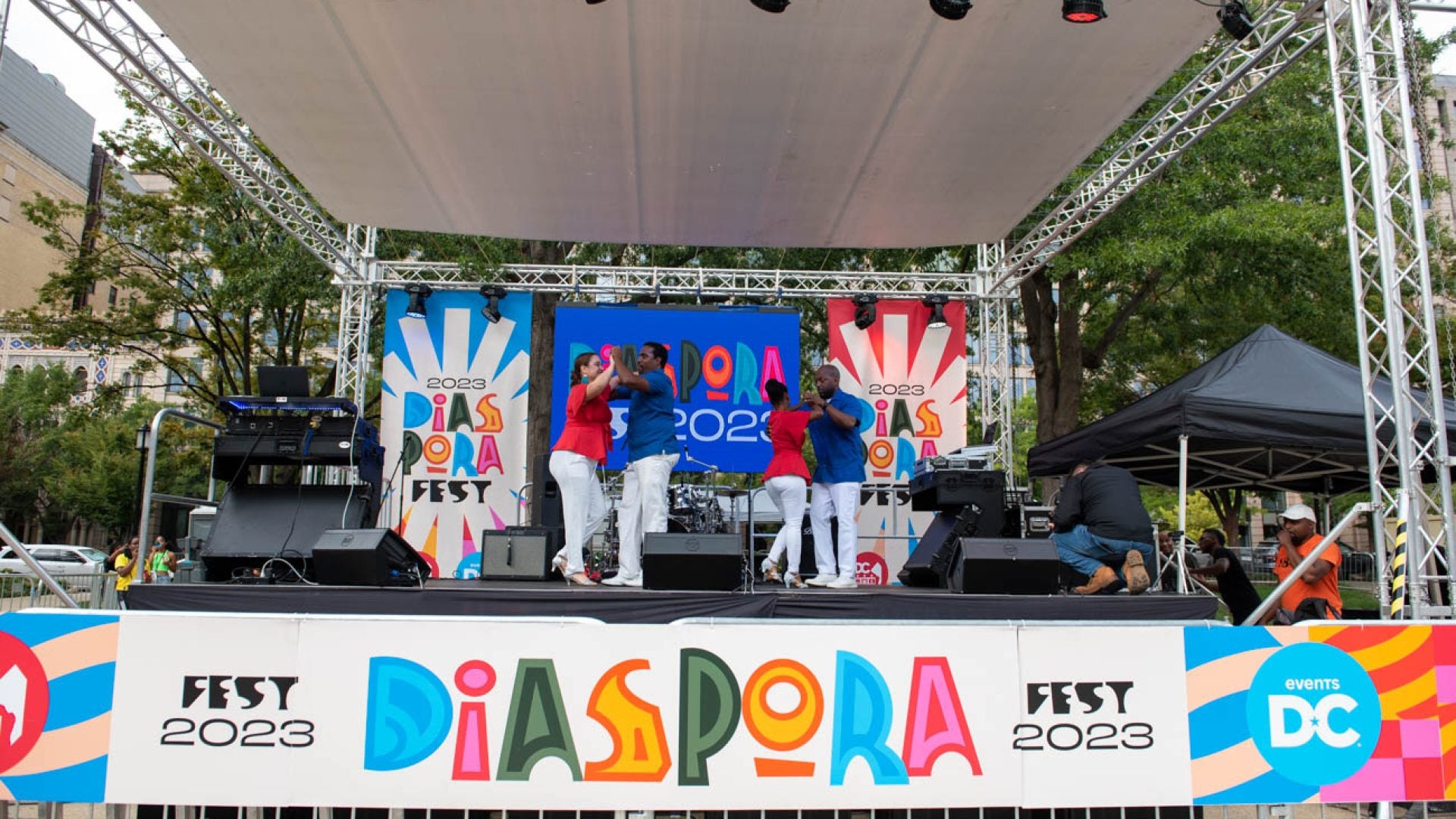
WASHINGTON, D.C.— Large crowds of people gathered at Franklin Park in the nation’s capital on September 30 to celebrate diverse cultures at the inagural Diaspora Fest, with a particular focus on the Caribbean diaspora.
Diaspora Fest featured unique art and fashion, delicious food, live music, and dance performances. From the signature moves of the DC Casineros that showed the crowds the beauty of Cuban dance to high-energy live band performances that had everyone grooving to the sounds of soca reggae, afrobeats, and more, it was an afternoon to remember.
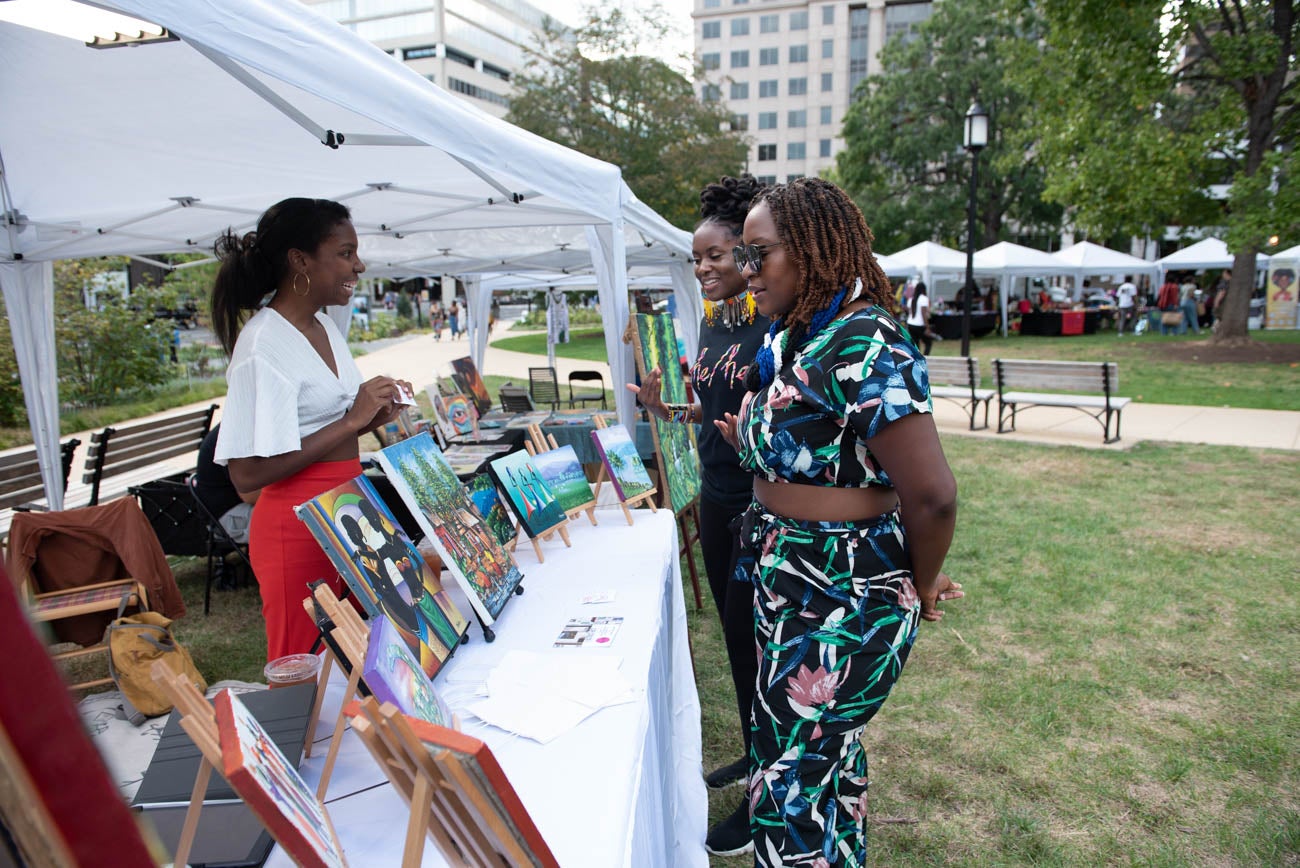
According to the Downtown DC Business Improvement District, 3,000 people attended the unique event, which featured a headlining performance by Freetown Collective. This dynamic global music group from Trinidad and Tobago is known for its unique genre fusions, soul-stirring performances, and inspirational messages.
“We are powerful people, Caribbean people, and the Diaspora. The effect we’ve had on the world of Pan Africanism, Black intellectual thought, art, writing and painting, you name it. We’ve been at the base at it contributing. I think it’s always for the next generation, [us] to carry on that legacy. So in any way that we could support that… we’re there,” shares Muhammad Muwakil, a lead vocalist of Freetown Collective.
However, this was more than the launch of a new festival. The inaugural Diaspora Fest officially marked the beginning of a local movement with plans for national expansion that would increase engagement, recognition, support, and cultural exchange for a community that’s often underrepresented.
“We wanted to showcase a very different aspect of Caribbean American programming. Although we are focused on carnival, we also aimed to showcase a wider and much more diverse platform altogether, hence our activations on art, animation, and a Caribbean American exhibition that provides a city-wide engagement with visitors,” says Shurland Oliver, co-chair of the recently formed Diaspora Arts Council.
“It [The Caribbean-American Heritage Exhibition] will also provide educational opportunities, but most critically — it will be used as a sustainable platform to support the Arts in DC and nationally,” Oliver tells ESSENCE. “The story of our venerable elders such as Maya Angelou, Sidney Poitier, Harry Belafonte, Shirley Chisholm, Bob Marley, Celia Cruz, Peter Minshall, and Jean Michel Basquiat must be told.”
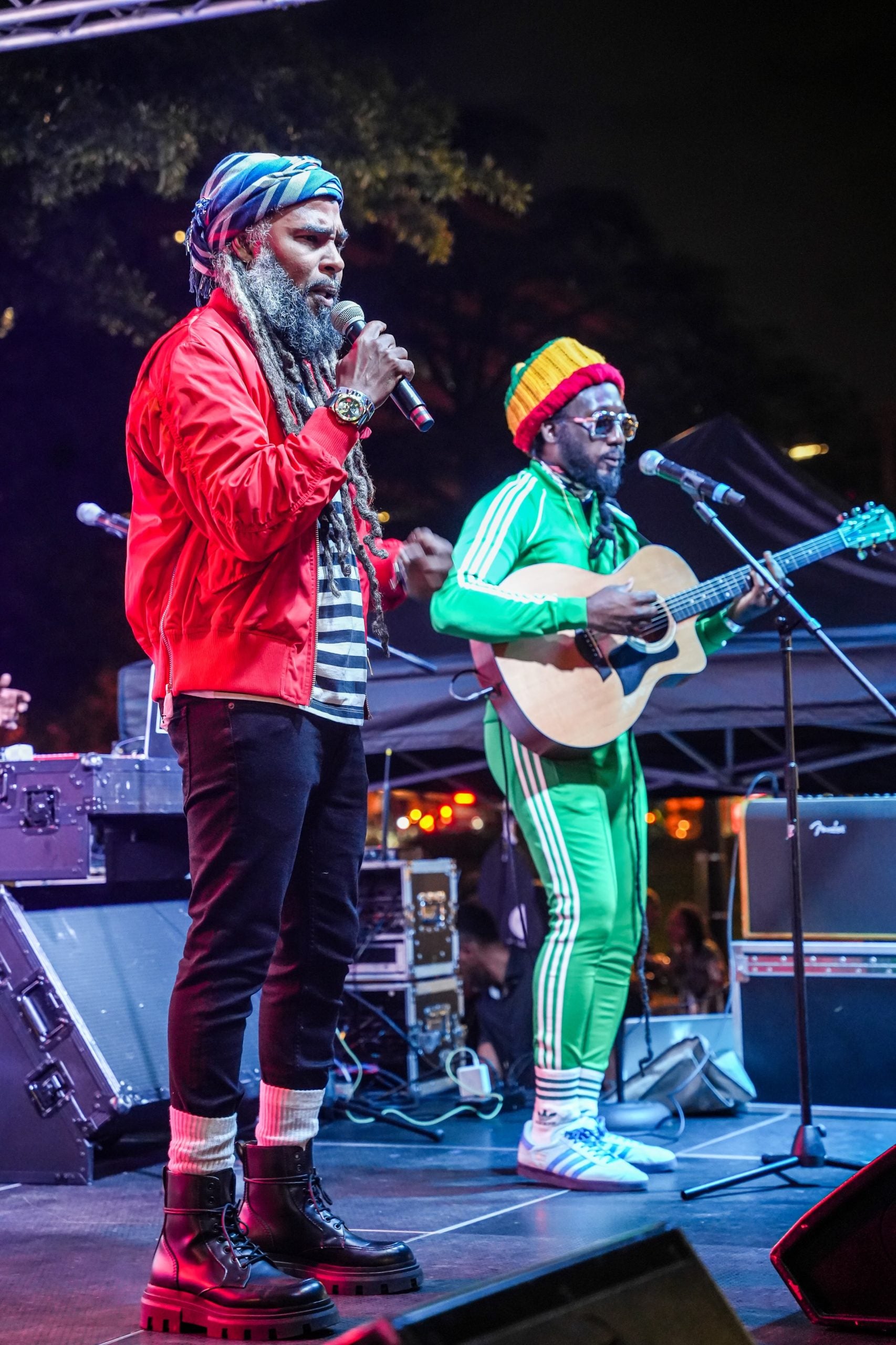
The 13-member council is made of individuals who have long-held experience and impact in the arts and culture space, including co-chair and renowned entertainment publicist Vida Ali, who has worked with legendary artists such as Tina Turner and Janet Jackson and led campaigns for local cultural staples like Ben’s Chili Bowl.
Other members of the Diaspora Arts Council include National Museum of African American History & Culture curators Dr. Joanne Hyypolite and Dr. Ariana Curtis, renowned sound engineer Sean Sturge who is VP of Global Sales at Clair Global and has worked with artists such as Beyoncé, Nicki Minaj, Drake, and Taylor Swift.
Some of the council’s other planned initiatives include the launch of a Caribbean American heritage exhibit to highlight contributions of the community in culture, sports, entertainment, and beyond; a leadership pipeline program that would provide internships and other opportunities to students who want to pursue artistic endeavors; and an exploratory committee for the hopeful return of carnival celebrations in D.C.
So far, the Diaspora Arts Council has received key sponsorship support from the Mayor’s Office of Cable, Television, Film, Music and Entertainment and Events DC, the official entertainment and cultural events authority in Washington, D.C., which helped make Diaspora Fest possible.
“I think it’s critical, because one of the things I kept hearing for years is there’s so much talent within the Caribbean community, past and present, and that we have not honored the ones of the past,” Ali tells ESSENCE. “The current ones are doing such amazing work, but they, too, have not been highlighted or honored. So, in creating this, it is exposing the youth to those in the communities that have made an impact, and they can be mentored, know that it’s happening in their community, and also learn whatever part of the arts they want to participate in, she adds.
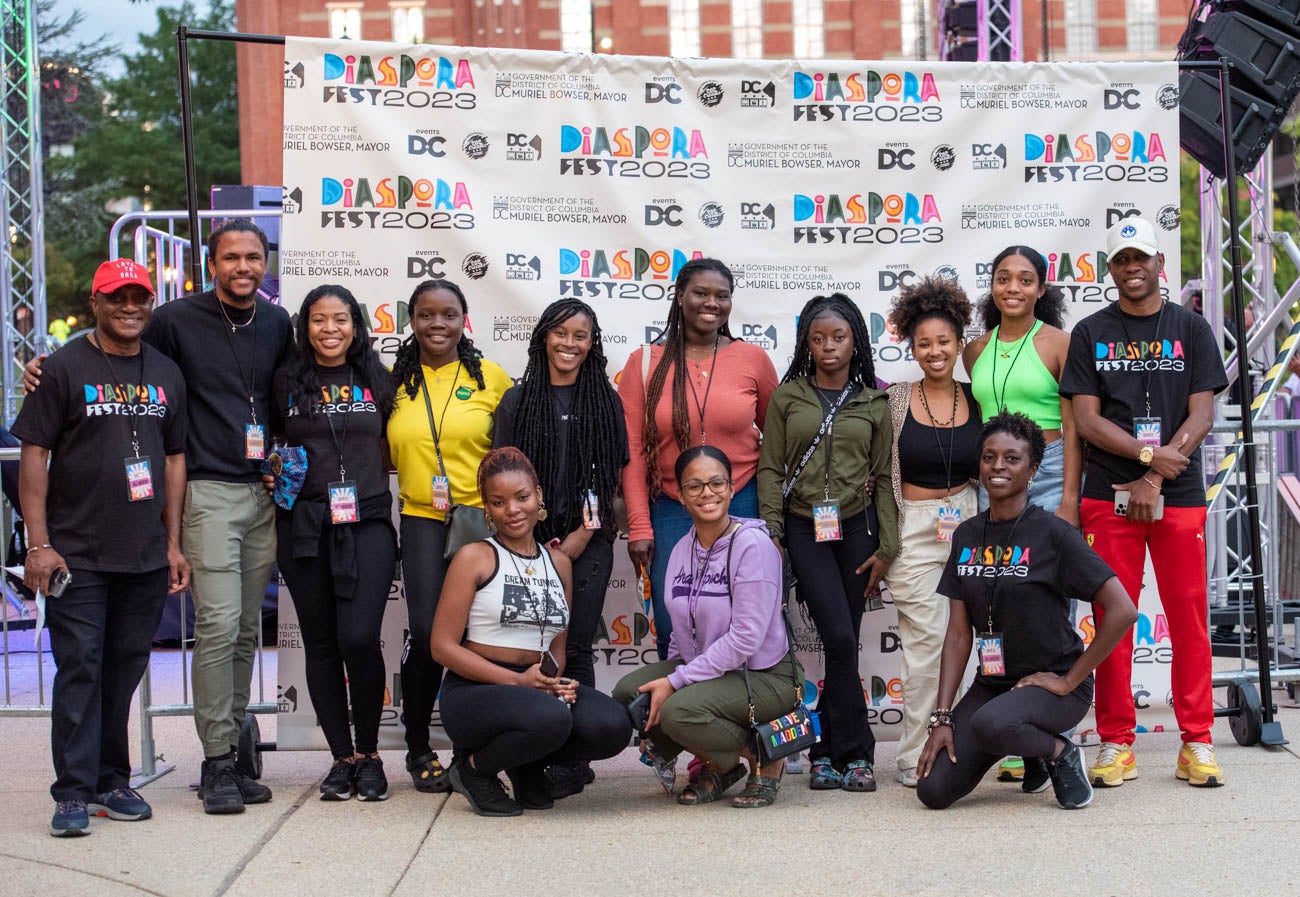
In addition to performing for the crowds at Diaspora Fest, Freetown Collective took some time to meet with fans and visit the campus of Howard University, where they spoke with members of the university’s Caribbean Student’s Association.







“Shurland was influenced by the music, so he shared it, and other people were also influenced by the music and said, hey, let’s get these guys here. You don’t realize how many miles that cut out. We literally made the world smaller. As we do this, we shrink this intimidating big globe into communities. That’s the gift Africa gave us, to always see ourselves as tribes and communities no matter where we go,” says Freetown Collective lead vocalist Lou Lyons.
Muwakil agreed, adding that the arts and artists play a central role in the storytelling of a people. “The artist maps the parts of the history that no one else pays attention to. The historians will tell you the dates and the times, the artists will map the psychological and emotional the overall feel of the people from any given moment,” he says.
As the community efforts of the council grow, the team behind it says it’s looking beyond the nation’s capital. It intends to start chapters in other creative capitals, including New York, Miami, and Los Angeles, where there are also sizable Caribbean diaspora communities to host events, provide resources, and amplify impact.

